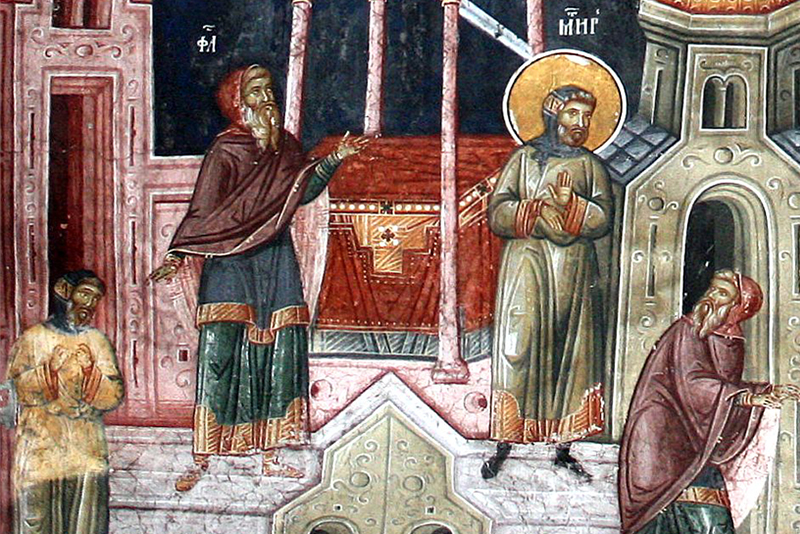
Matthew 15: 32–39
Rom. 14: 6–9
The apostle writes, “Those who observe the day, observe it in honor of the Lord. Also those who eat, eat in honor of the Lord, since they give thanks to God; while those who abstain, abstain in honor of the Lord and give thanks to God.”
The Lord is one, and everyone has their own temperament, their own “modality” of the soul and their own approach to life. Some see the fullness of God’s wisdom in one little flower and kneel down before it forever, while others walk with affection through fields and meadows, endlessly discovering new shades of this endless wisdom. Some go only to their own church, while others love to attend different churches, travel to monasteries and visit holy places. It is important for them to see all the richness of church life and the diversity of human holiness.
Some “observe the day” and try to experience the events related to the earthly life of the Lord, the Mother of God and the saints as fully as possible. Others live their lives as one day and see the fullness of the Nativity, the Cross, the Resurrection and the glory of the saints in every liturgy.
One eats, remembering God Who sends him food, and treats every meal as the miracle of feeding the four thousand. He eats reverently and quietly, giving thanks to God, as if he was at the Lord’s supper. Others abstain from food for the sake of abstinence. They understand that refraining from eating for the Lord’s sake is even greater than enjoying God’s gifts, and they are grateful to God for not eating.
It is important, however, that the choices that we make are not for our own sake but for the Lord. It is easy to check yourself here. A person who chooses doing something for the Lord’s sake has sincere respect for those who make different choices than his. Such a person will not condemn anyone else’s intemperance, nor will he find fault with someone else’s abstinence. It would never occur to him to boast of what he does or does not “eat”. It is true because in Christ there is a place for everyone. There is hardly a sharper contrast than the living and the dead, and yet, Christ was able to embrace both with His love. “Christ died and lived again, so that he might be Lord of both the dead and the living”. Like a lightning, His love penetrates through the sky, the earth and the underworld, electrifying everything and leaving everywhere a trace of His presence. Everything has acquired a new meaning and saving power. To this end, “we do not live to ourselves, and we do not die to ourselves. If we live, we live to the Lord, and if we die, we die to the Lord; so then, whether we live or whether we die, we are the Lord’s”.
Translated by The Catalogue of Good Deeds




